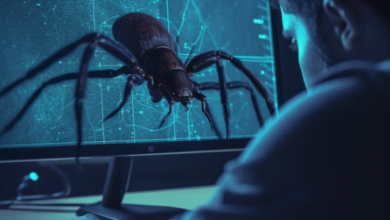Mastering Bug Hunting Rules: Your Guide to Ethical Discoveries
Staying Ethical & Lawful in Your Bug-Hunting Quest

Mastering Bug Hunting Rules: Setting the Course Right
Hey tech aficionados! Ever considered bug hunting as the ultimate digital treasure hunt? It’s fun, thrilling, and super rewarding. But here’s the twist: understanding bug-hunting rules is crucial. Dive in to ensure your hunt remains not just thrilling but also squarely within the boundaries of the law.
Understanding Your Playground: The Boundaries Set for You
Every game has its field, and in bug hunting, we call it the “scope.” It’s the area you’re allowed to explore and search for those pesky bugs. Just like in a game, stepping out of bounds isn’t just a foul—it could land you in real-world trouble. For example, if a website gives you permission to test their login page, it doesn’t mean you can peek into their payment system.
Your Rule Book: Because Every Game Has One
Different platforms have different rules. Think of platforms like HackerOne or Synack; each has its own guidelines. Imagine starting a board game without checking the rules first. You’d be lost, right? Similarly, before starting your bug hunt, get familiar with the platform’s policy. It’s like having a roadmap in an unknown city!
Sharing Your Discoveries: Timing is Key
Imagine finding a secret door in a game. You’d want to tell everyone, right? But in bug hunting, once you discover a vulnerability, it’s crucial to report it to the platform first. This gives them time to fix the issue before it becomes public knowledge. It’s like finding a secret and ensuring it stays safe until it’s okay to share.
Hacking vs. Bug Hunting: Two Sides of a Coin
Hacking and bug hunting are like cats and lions. They might seem similar, but their intentions are different. While hacking might have a sinister objective, bug hunting aims to make the digital world safer. It’s like the difference between a pirate searching for treasure to steal and an archaeologist searching to discover and protect.
Stumbling Upon Secrets: Handle with Care
While hunting, there’s a chance you might come across personal info, like names or email addresses. Knowing rules, such as the GDPR (which is big in Europe), is essential. Let’s say you’re exploring a virtual cave and find someone’s lost diary. Would you read it out loud? No, right? The same goes for personal data.
Broadening Your Legal Know-How: Tools to Help
Staying updated with the laws isn’t just about reading big books or attending boring classes. Today, there are fun and interactive ways to learn:
- Interactive Courses: Websites like Coursera or Udemy offer courses that make learning about cyber laws fun and interactive.
- Certification Programs: Sites like Cybrary or ITProTV offer certifications focused on cyber laws, giving you a shiny badge for your efforts.
Reading Between the Lines: Contract Details
Every agreement has its fine print, and in bug hunting, understanding this is vital:
- NDAs: These might ask you to keep your findings a secret for a while.
- Safe Harbor Clauses: This one’s a safety net, ensuring if you stick to the rules, you’re free from legal troubles.
Learning from the Pros
Webinars, Q&A sessions, or online discussions can be super helpful. Platforms like HackerOne or even cybersecurity forums sometimes host experts who can answer tricky questions.
Stay In-the-Know: Resources to Keep You Updated
For those who love staying updated:
- Legal Podcasts: The Cyberlaw Podcast is one. They discuss the latest happenings in the cyber law world.
- International Law Webinars: With the digital world having no borders, understanding international laws is a plus. Platforms like edX offer webinars that cover this.
In Conclusion
Bug hunting is a mix of tech skills and understanding the rules of the game. While chasing digital bugs can be exhilarating, staying on the right path is equally important. As you embark on this journey, remember to arm yourself with knowledge and play by the rules. The digital world is vast, and there’s plenty to explore safely and ethically!




